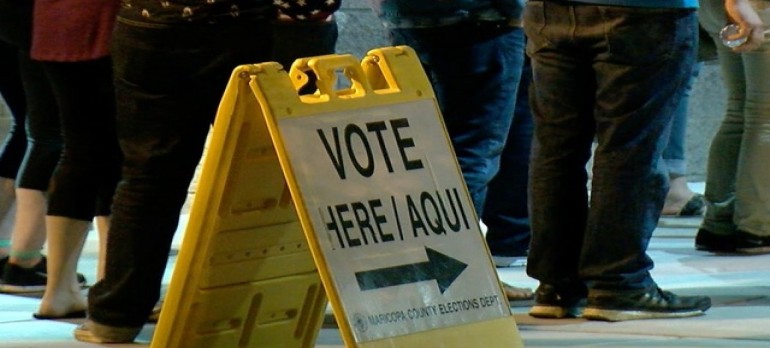
Arizona’s Establishment of Electoral Integrity Unit Highlights Rare Bipartisan Consensus
In the wake of the 2018 Senate election in Arizona, politicians grew concerned of the status quo of safeguards protecting voters, protecting ballots, and protecting the overall electoral process in the state. Over the course of the election and the post-mortem analysis, a number of inconsistencies in the process startled state and local officials.
As Real Clear Politics highlights, emergency voting centers in heavily partisan precincts, overseen by a proven-partisan official, was just the tip of the iceberg. Real Clear Politics explains:
Critics say [Maricopa County Recorder] Fontes disenfranchised voters in other counties by continuing to verify signatures for days after the election had ended on a certain group of mail-in ballots that were dropped off at the polls on Election Day. Before Fontes’ time in office, Maricopa and other counties in the state had stopped that signature verification process at 7 p.m. on election night. Several other Arizona counties, per that norm, stopped that night, not knowing that Fontes and three other county recorders planned to continue verifying the signatures for several more days.
In addition to these concerns, pre-filled ballots were sent to some voters, while the largest county, Maricopa, continues to operate an out-of-compliance voter database that fails to sync with state records. In light of this, some officials have taken steps to secure the ballot heading into the 2020 election.
Arizona House Majority Leader Warren Petersen successfully pushed a bill to create a taskforce within the Attorney General’s office to investigate issues of election fraud. The legislation, which was signed into law by Governor Doug Ducey, garnered support on both sides:
Katie Hobbs, a Democrat who oversees elections statewide as the secretary of state, said it’s an opportunity to boost confidence in elections without diverting money from other election purposes. ‘They said that they want to show that the system is not plagued by fraud,’ Hobbs said. ‘So I’m taking that at face value.
Majority Leader Petersen explained his concerns surrounding vote fraud, stating Arizona’s citizens do not know who to contact when they suspect malfeasance and hoping the new unit will strengthen the public’s view of the electoral process. Leader Petersen stated:
Fraud is so hard to prove, and what are you going to do if you’re a private citizen and you see people ballot-harvesting or filling out another person’s ballot? You don’t even know who to report it to,” Petersen said. “It’s not only hard to prove, but it’s hard to prosecute. Things were so suspicious last time, we felt like it was time to do something.
This taskforce, operating within the office of the Arizona Attorney General, will include a licensed investigator, an auditor, a senior attorney, and legal support staff. The unit will not be funded public funds, but rather from a settlement fund from a recent case unrelated to election fraud.

